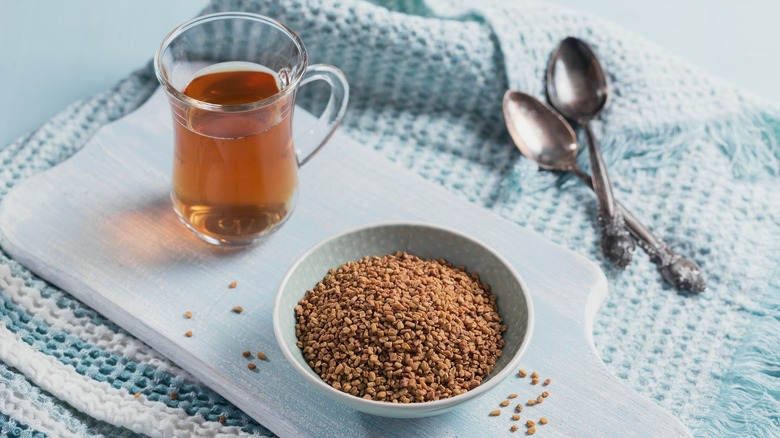Can Fenugreek Help With Breastfeeding?
Peaceful images of mothers happily breastfeeding their infants may be the norm, but that's not always the reality for new moms. Although breastfeeding has many benefits to both mother and baby, it can also bring several challenges that get in the way of a nurturing, satisfying experience.
The World Health Organization recommends babies be breastfed within the first hour of life and exclusively breastfed (not supplemented with formula or other foods) for the first six months. They suggest that breastfeeding continues along with other foods from six months to two years. According to the American College of Obstetricians and Gynecologists, only 25% of women exclusively breastfeed their babies at the six-month mark.
Some factors contributing to early weaning include pain while breastfeeding, medication use, postpartum depression, lack of access to paid maternity leave, barriers to breastfeeding or pumping in the workplace, and perceived or actual low milk supply (per American College of Obstetricians and Gynecologists). Signs of low supply include a baby developing jaundice, having insufficient wet or soiled diapers, lethargy, inconsolability, unchanged stool color, and a lack of weight gain.
But is there anything moms can do to help with breastfeeding?
Consuming fenugreek may help
Although many women worry they don't have an adequate supply, most produce sufficient milk (via Healthline). However, there may be times when you want to increase your production. That's where fenugreek, a maple-tasting herb that's been used by mothers for centuries, comes in.
In a 2018 review published in Phytotherapy Research, it was shown that in five studies of 122 mothers, consuming fenugreek "significantly increased" their breastmilk supply. Researchers believe that the phytoestrogens, or plant chemicals that mimic estrogen, present in fenugreek may have something to do with fenugreek's success, according to Healthline.
If you want to incorporate the herb into your regimen, you can steep whole fenugreek seeds in boiling water to make an herbal tea, or you can take a more concentrated capsule form. The Food and Drug Administration (FDA) placed fenugreek on their GRAS ("generally recognized as safe") list, and adverse effects are rare (per Healthline). However, some common side effects include nausea, vomiting, gas, and diarrhea. It's also documented to be safe for the baby and has no known interactions with other drugs.
It may be worth looking into other herbal methods to boost milk supply as well. Some research suggests palm dates and Coleus amboinicus Lour, a plant that smells a bit like oregano, were even more effective than fenugreek supplements, according to Healthline. Be sure to check with your doctor before making changes to your regimen.

